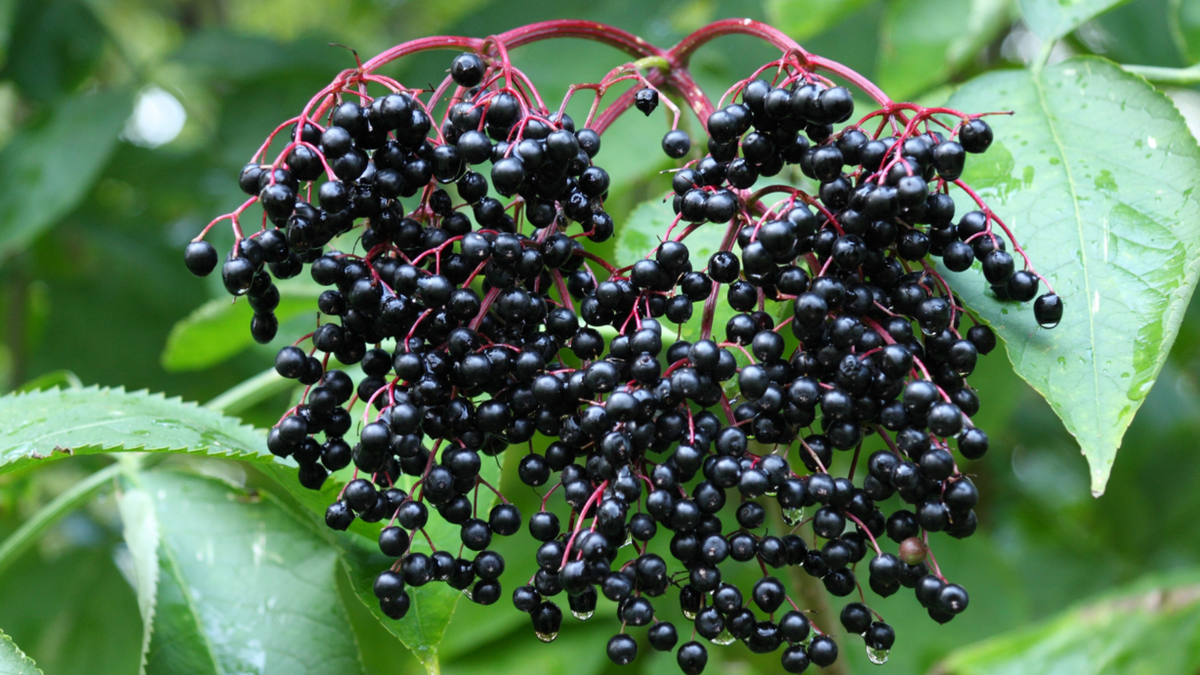
Organic Elderberry for Kids' Sleep & Immune Health Support
|
|
Tiempo de lectura 4 min
As a parent, helping your child get quality sleep—and stay healthy year-round—is probably high on your priority list. While a balanced diet and regular routines are key, certain natural supplements can provide extra support. One standout? Organic elderberry.
This small, dark purple berry has been used for centuries in traditional remedies as a kids sleep aid. Today, it’s gaining attention for its immune-boosting and sleep-supporting properties[¹]—especially when sourced organically and formulated for kids. Here's why it might deserve a spot in your child’s daily wellness routine.
What Is Organic Elderberry?
Elderberries come from the Sambucus tree, with Sambucus nigra (European elder) being the most commonly used for supplements. When you see “organic elderberry for kids,” it means the berries are grown without synthetic pesticides, herbicides, or GMOs—ideal for supporting a cleaner, safer approach to children's health.[⁵
These berries are rich in antioxidants, particularly anthocyanins, which give them their vibrant color and disease-fighting reputation[¹].
1. Elderberry May Support Better Sleep
While elderberry isn't a sedative, it plays an indirect role in promoting restful sleep by supporting the immune system and lowering inflammation, both of which are linked to better sleep quality[²].
When kids are constantly battling mild colds or discomfort, their sleep can suffer. Elderberry’s antiviral and anti-inflammatory effects help calm the body and support healthy recovery—setting the stage for more restful nights[³].
According to (Irwin, M. R., 2019), In some elderberry formulations for kids, you might also find added sleep-supporting ingredients like chamomile, magnesium, or melatonin. Together, these work synergistically to help children wind down.

2. It Strengthens the Immune System
Elderberry is best known for its ability to boost immune function. Studies show that elderberry extract can reduce the duration and severity of cold and flu symptoms by helping the body mount a quicker immune response[⁴].
For kids in school or daycare—where germs are everywhere—this means fewer sick days and more time being active, learning, and sleeping well[⁴].

3. Packed With Antioxidants for Growing Bodies
Children’s growing bodies are especially vulnerable to oxidative stress, which can damage cells and affect overall health. Elderberries are naturally high in vitamin C and anthocyanins, two powerful antioxidants that help fight free radicals and support skin, bone, and immune health[⁵].
By neutralizing harmful molecules, elderberry, as kids’ sleep aid, may help reduce inflammation and support a healthy inflammatory response, which plays a role in both immune defense and brain function[⁴].

4. May Soothe Mild Allergy Symptoms
If your child deals with seasonal allergies, elderberry might offer natural relief. Thanks to its anti-inflammatory properties, elderberry has been studied for its ability to reduce sinus inflammation, soothe irritated tissues, and support upper respiratory health[⁶].
While more research is needed specifically for kids, parents often report fewer allergy-related symptoms during spring and fall when their children take elderberry.[¹]

5. Gentle and Kid-Friendly When Taken Safely
When properly prepared and dosed for children, organic elderberry for kids supplements—such as syrups, gummies, or powders—are safe and gentle on young systems. The key is choosing formulas made specifically for kids, with no added sugar, artificial dyes, or unnecessary fillers (Tiralongo, E., Wee, S. S., & Lea, R. A., 2016).

Note: Raw elderberries or improperly prepared extracts can be toxic. Always choose products from trusted brands and follow the dosage instructions based on age.
How to Add Organic Elderberry to Your Child’s Routine
You can introduce the use of elderberry for kids as part of your child’s daily routine, especially during cold and flu season. Whether it's a gummy before bed or a morning spoonful of syrup, consistency is key. Look for products labeled USDA Organic, and check the ingredient list for quality and purity[³].
Conclusion
From immune defense to antioxidant protection and gentle sleep support, organic elderberry foe kids is a kid-friendly super-ingredient that can help your child feel their best—day and night. Always opt for high-quality, age-appropriate products, and consider adding elderberry to your child’s natural wellness toolkit. With its natural benefits and kid-safe formulation, it’s a simple way to support your little one’s health. As always, consult your pediatrician before introducing any new supplement.
FAQs About Organic Elderberry for Kids
Can my child take elderberry every day?
Yes—most pediatric-friendly elderberry supplements are safe for daily use for kids sleep aid, especially during seasons with high viral exposure. Always follow the dosing instructions provided on the product or ask your pediatrician[³].
At what age can children start taking elderberry?
Many products are suitable for kids ages 2 and up, but it's best to check with your child’s doctor before introducing any new supplement, especially for toddlers or those with allergies.
Does elderberry help with sleep directly?
Elderberry doesn’t directly make kids sleepy but supports immune health and inflammation balance, which can lead to better, more restful sleep—especially when combined with calming herbs or nutrients.
References
Zakay-Rones, Z., Thom, E., Wollan, T., & Wadstein, J. (2004). Randomized study of the efficacy and safety of oral elderberry extract in the treatment of influenza A and B virus infections. Journal of International Medical Research. Retrieved from https://pubmed.ncbi.nlm.nih.gov/15080016/ .
Irwin, M. R. (2019). Sleep and inflammation: Partners in sickness and in health. Nature Reviews Immunology, 19(11), 702–715. Retrieved from https://pubmed.ncbi.nlm.nih.gov/31289370/ .
Kinoshita, E., Hayashi, K., Katayama, H., Hayashi, T., & Obata, A. (2012). Anti-influenza virus effects of elderberry juice and its fractions. Bioscience, Biotechnology, and Biochemistry. Retrieved from https://pubmed.ncbi.nlm.nih.gov/22972323/ .
Tiralongo, E., Wee, S. S., & Lea, R. A. (2016). Elderberry supplementation reduces cold duration and symptoms in air travelers: A randomized, double-blind placebo-controlled clinical trial. Nutrients. Retrieved from https://pubmed.ncbi.nlm.nih.gov/27023596/ .
Lila, M. A. (2004). Anthocyanins and human health: An in vitro investigative approach. Journal of Biomedicine and Biotechnology. Retrieved from https://pmc.ncbi.nlm.nih.gov/articles/PMC1082894/ .
Roschek, B., Fink, R. C., McMichael, M., Alberte, R. S. (2009). Elderberry flavonoids bind to and prevent H1N1 infection in vitro. Phytochemistry. Retrieved from https://pubmed.ncbi.nlm.nih.gov/19682714/ .



